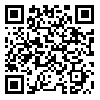Sun, Feb 15, 2026
| فارسی
Volume 27, Issue 4 (Winter 2022)
IJPCP 2022, 27(4): 536-555 |
Back to browse issues page
Download citation:
BibTeX | RIS | EndNote | Medlars | ProCite | Reference Manager | RefWorks
Send citation to:



BibTeX | RIS | EndNote | Medlars | ProCite | Reference Manager | RefWorks
Send citation to:
Wah M T. Anxiety Symptoms Associated With the Severity of Problematic Smartphone Use: The Mediating Role of COVID-19 Anxiety. IJPCP 2022; 27 (4) :536-555
URL: http://ijpcp.iums.ac.ir/article-1-3470-en.html
URL: http://ijpcp.iums.ac.ir/article-1-3470-en.html
Department of Surgery, Faculty of Medicine, The Chinese University of Hong Kong, China. , matszwah@gmail.com
Abstract: (4103 Views)
Objectives: The Coronavirus Disease 2019 (COVID-19) pandemic is regarded as the biggest global health crisis in recent decades. The changes in major life domains due to infection control strategies resemble the functional impairment consequential to emotional distress and place many people at greater risk of psychiatric conditions. Meanwhile, the COVID-19 pandemic and associated social distancing have widely increased the usage of smartphone to receive COVID-19-related information in the past year. However, the excessive use of smartphones has deleterious consequences. The current study investigated general anxiety symptoms and COVID-19-induced anxiety, and their impact on problematic smartphone use (PSPU) severity.
Methods: Adults aged 18–75 years were recruited by stratified, probability sampling from a database representative of the population. Among 1080 Hong Kong Chinese (age 18–75 years), a cross-sectional web-based survey was conducted between July 23 and August 25, 2020 (the period of the third wave outbreak of COVID-19 in Hong Kong). Participants were assessed with the measures, including the Depression Anxiety Stress Scale-21, Generalized Anxiety Disorder Scale-7, and Smartphone Addiction Scale-Short Version. Structural equation modeling (SEM) was used to evaluate the associations among general anxiety symptoms, COVID-19-induced anxiety, and severity of PSPU by the Amos 22.0 software.
Results: Using established cut-off scores, our results found that prevalence of at least moderate anxiety level in around 22% of participants. Using SEM, both general anxiety symptoms and COVID-19-induced anxiety were associated with PSPU severity. Moreover, COVID-19 anxiety partially mediated relations between predisposing general anxiety with PSPU severity.
Conclusion: This study provides initial data on the mental health status of people affected by COVID-19. It also investigated the relations between COVID-19-induced anxiety and PSPU severity as a coping mechanism.
Methods: Adults aged 18–75 years were recruited by stratified, probability sampling from a database representative of the population. Among 1080 Hong Kong Chinese (age 18–75 years), a cross-sectional web-based survey was conducted between July 23 and August 25, 2020 (the period of the third wave outbreak of COVID-19 in Hong Kong). Participants were assessed with the measures, including the Depression Anxiety Stress Scale-21, Generalized Anxiety Disorder Scale-7, and Smartphone Addiction Scale-Short Version. Structural equation modeling (SEM) was used to evaluate the associations among general anxiety symptoms, COVID-19-induced anxiety, and severity of PSPU by the Amos 22.0 software.
Results: Using established cut-off scores, our results found that prevalence of at least moderate anxiety level in around 22% of participants. Using SEM, both general anxiety symptoms and COVID-19-induced anxiety were associated with PSPU severity. Moreover, COVID-19 anxiety partially mediated relations between predisposing general anxiety with PSPU severity.
Conclusion: This study provides initial data on the mental health status of people affected by COVID-19. It also investigated the relations between COVID-19-induced anxiety and PSPU severity as a coping mechanism.
Type of Study: Original Research |
Subject:
Psychiatry and Psychology
Received: 2021/04/4 | Accepted: 2021/11/23 | Published: 2022/01/1
Received: 2021/04/4 | Accepted: 2021/11/23 | Published: 2022/01/1
| Rights and permissions | |
 |
This work is licensed under a Creative Commons Attribution-NonCommercial 4.0 International License. |






